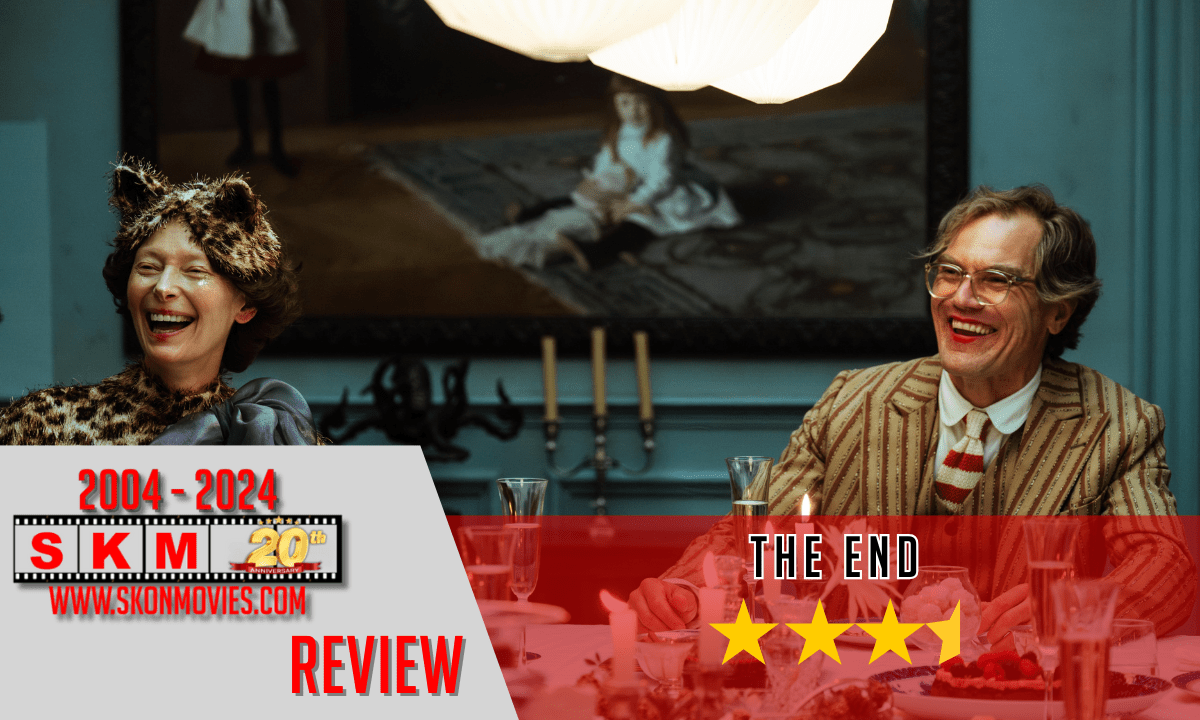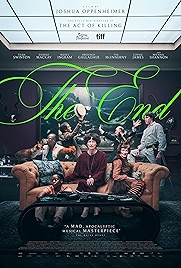After decades alone, a wealthy family living in a salt mine encounters a stranger.
Content Advisory:
A family’s existence within a fallout shelter is disrupted by the arrival of an outsider in The End. Following an apocalyptic event, a former Energy Tycoon (Michael Shannon) and his Wife (Tilda Swinton), descend into an underground bunker along with their Butler (Tim McInnerny), Doctor (Lennie James) and Friend (Bronagh Gallagher). The couple’s Son (George MacKay) was born in the shelter and knows very little about the outside world. The family’s dynamic and isolation is disrupted by a Girl (Moses Ingram) seeking shelter from the world above.
The End Synopsis
The End is a musical post-apocalyptic drama co-written and directed by Joshua Oppenheimer (The Act of Killing, The Look of Silence), in his narrative feature film debut. The film takes place 20 years after an unspecified apocalyptic event, where a family has taken shelter within a bunker in a salt mine. Outside the periodic emergency drill, those within the shelter try to live with a sense of normalcy. Despite living in the shelter with an inherent distrust of anyone coming from the outside world, the family reluctantly lets in Girl, played by Moses Ingram (The Tragedy of Macbeth, Obi-Wan Kenobi) who is struggling with survivor’s guilt, after leaving her family behind. Girl’s presence shakes up the worldview of Son, played by George MacKay (1917, Wolf, Femme), who previously had a narrow-minded view of the world before the end.
My Thoughts on The End
With 2012’s The Act of Killing and its 2014 follow-up The Look of Silence, Joshua Oppenheimer established himself as one of the most acclaimed documentary filmmakers of this generation. That makes it curious that after a decade-long hiatus, Oppenheimer returned with his first narrative feature-film, which happens to be a post-apocalyptic musical. The narrative of The End sounds like something that would fit right at home with the cinematic dramatizations featured within The Act of Killing.
The End keeps the backstory of its characters to a minimum, which includes not giving any of the protagonists names. However, certain facts are learned over time, such as how Michael Shannon’s Father is in the midst of writing a possibly whitewashed, autobiography and how Tilda Swinton’s Mother’s claim of once being a stage perform might be hyperbolic. Much of the story of The End is told from the perspective of George MacKay’s Son, who is the only one within the bunker to have zero knowledge of what the outside world was like.
I am not sure about the decision about presenting The End as a musical, since the songs in the film comes off as forced and unnatural. While some are better than others, none of the cast members in the film are particularly good singers, which adds to the jarring nature of watching the narrative unfold. In addition, while the plot of The End develops a pessimistic sense of hopelessness, especially as Son learns more truths about what happened before the Bunker, the film has a very tacked on optimistic ending that comes out of nowhere.
While The End is still a perfectly watchable film, it pales greatly in comparison to Joshua Oppenheimer’s way superior documentary films. Very few documentary filmmakers not named Werner Herzog have successfully been able to make the transition into narrative filmmaking. Joshua Oppenheimer is the latest of these, and perhaps he should still with what he is good at.



